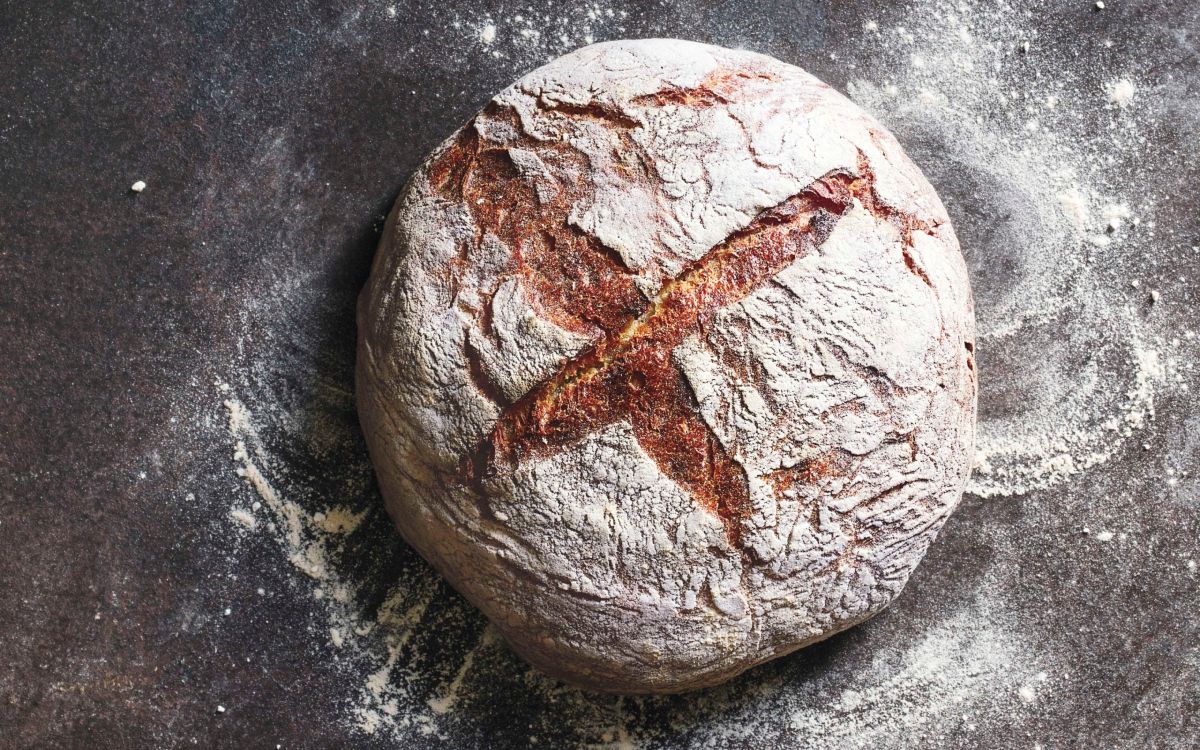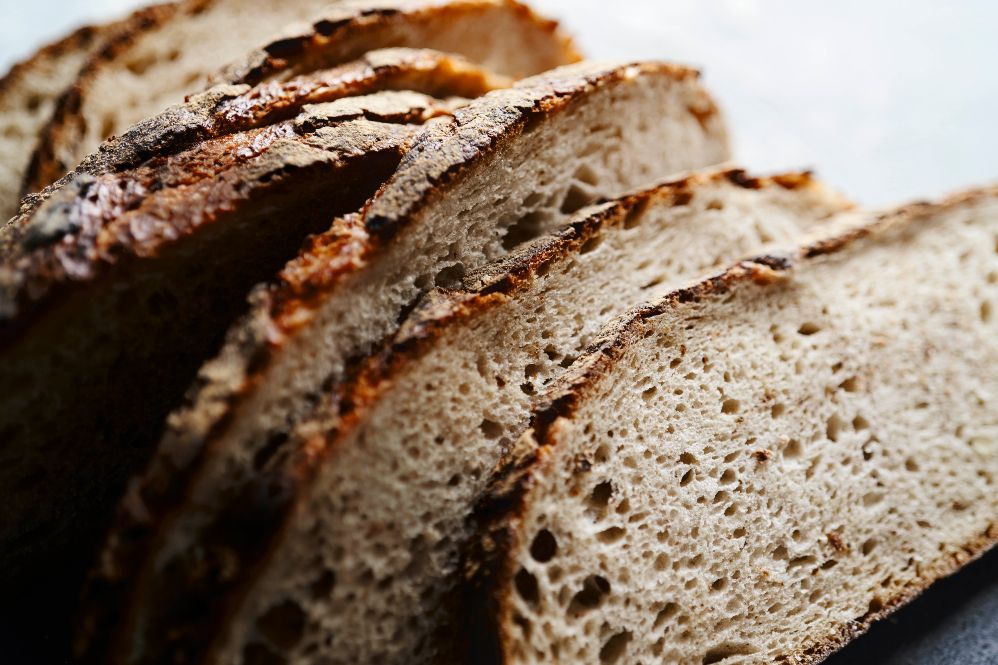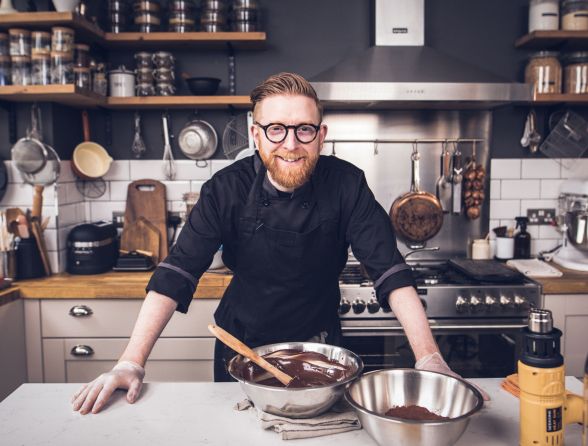Rise up for Sourdough September
The best classes, expert tips and tools to help you level up your bread making game
With at-home bread making – and sourdough in particular – enjoying something of a moment, more and more of us are discovering the rewards of rolling up our sleeves and baking our own bread. Whether you’re an absolute beginner or an old hand looking to level up your game, Sourdough September is a great time to dive in.
‘Every September, we go on a mission to help everyone discover that life’s sweeter with sourdough,’ explains the Real Bread Campaign’s Chris Young.
‘Genuine sourdough bread is made without additives and leavened only using a live starter culture of yeasts and the lactic acid bacteria that are naturally present on the surface of grains,’ he explains. ‘The longer, slower fermentation process results in a glossy crust and crumb, and a more complex flavour and aroma. A growing number of studies suggests that sourdough fermentation might also have health benefits.’
‘Sourdough has a low GI index which helps keep blood sugar steady, can help with weight loss and is usually tolerated well by people who feel bloated after eating commercial breads,’ adds artisan baker Mark Woods, who runs one-day beginner’s bread making and sourdough courses at Walsall’s Slow Loaf Bakery.
‘The process of making a sourdough loaf takes time, and this breaks down the flour in a way that makes it much more digestible,’ explains Norfolk baker Sue Hudson, who offers a range of live online courses via her website Bread Workshops.
Why bake your own bread?
Baking can be a really rewarding way to sneak some health benefits into your lunchtime toastie. ‘Making your own bread is deeply satisfying and empowering,’ says Sue. ‘It also comes with the benefit of knowing there is nothing in it but yeast, salt, flour and water.’
‘Commercial breads contain fats, sugars, preservatives and improvers which we do not need to eat,’ adds Mark. ‘When you make your own bread, you know exactly what you have put into it. You can reduce the amount of salt you add, and add seeds and nuts to suit your own tastes and increase the health benefits.’
But the process itself is often just as important as the result. Baking bread and kneading dough gives you a great opportunity to engage your senses and savour the moment – for some people, it can almost become a meditative experience. ‘Bread making can be a great exercise in mindfulness,’ agrees Chris.
Get started with starters
If you’re just starting out, a good bread maker will give you a headstart. The award-winning Panasonic SD-ZX2522 comes with more than 20 baking programs and 15 dough programs, allowing you to make everything from rustic sourdough to scones, pizza, rye and raisin bread from scratch.
Want to get a bit more hands on? Sourdough is the oldest, most traditional way of leavening a loaf. ‘All you need is flour, salt and a tap,’ says Chris. ‘You can nurture your own sourdough starter culture using the flour and water, then add more flour and a little salt to make a dough. Then you just need something to prove the dough on or in, and something to bake it in.’
Not much beats the smell of freshly baked bread first thing in the morning. ‘You can prove your dough overnight, and bake fresh bread almost as soon as you wake up,’ suggests Mark.
You’ll find plenty of free recipes on the Real Bread Campaign website. Pick your favourite and give it a go, keeping Chris’s top tips in mind:
- Keep it simple: all you need to make real bread are three or four ingredients.
- Keep calm: if things don’t turn out as planned, don’t worry. It’ll still taste great – at the very worst, you’ll only have lost a few pence worth of ingredients.
- Keep at it: stick to one basic recipe at first. Make slight adjustments if necessary, and note them down. Even the most experienced and knowledgeable bakers continue to learn and improve throughout their lives.
Learn from the experts
If you’d like step-by-step guidance from a professional baker, signing up for a bread making workshop is a great idea. You can find a list of farms, bakeries and cookery schools offering local and online bread making courses on the Real Bread Campaign website.
‘I limit my workshops to four people to maximise the learning experience,’ explains Mark, who offers a beginner’s bread making course in Walsall on the last Sunday of each month. He will also be running a special sourdough course on Sunday 11th October. ‘The day is always fun and hands-on. After a brief demonstration over tea and toast, you’ll spend the rest of the day baking and go home with some tricks of the trade and the skills you need to make your own special loaf.’
Sue’s fun, informal online workshops take place on Zoom, allowing you to learn a new skill from the comfort of your own kitchen. ‘In a typical workshop, you’ll learn to make two to three different kinds of bread,’ she explains. ‘Once your booking is confirmed, you’ll receive a list of all the ingredients and kitchen equipment you’ll need. Numbers are kept low to ensure everyone gets the most out of their day, with plenty of opportunities for chat, tips and tea.’
Visit Waitrose.com for more bread recipes, from mini baguettes to gluten-free beer bread.
Images: Waitrose & Partners






